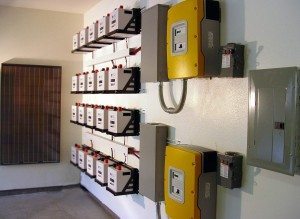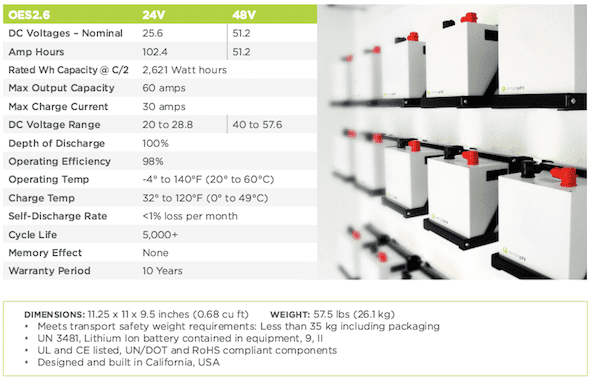
Another battery storage contender has joined the rush to the Australian market, with the arrival on Friday of US company SimpliPhi Power, which says it will team up with DPA Solar to sell its lithium ferrous phosphate battery systems in Australia and New Zealand.
Under the agreement, DPA Solar will distribute SimpliPhi Power’s batteries to its “vast network” of electricians and commercial businesses in Australia and New Zealand.

As noted elsewhere on RE today, Australia has been pinpointed by industry heavy hitters Tesla and Enphase, among others, as the most prospective battery storage market in the world, thanks to its high grid prices, its abundance of rooftop solar, excellent solar resources, and the nature of the tariffs across the nation.
This is backed by a number of industry analyst reports, including one published today by Greentech Media, preciting that Australia’s battery storage market will “explode” in 2016, with the residential sector expected to grow 20-fold over the next 12 months.
California-based SimpliPhi, which pits itself against Tesla in the race to Australia, says its batteries offer 98 per cent operating efficiency, are “non-toxic”, safer than other lithium-ion chemistries on the market, and do not require the ventilation or cooling mechanisms like some of its competitors.
The batteries are also said to be compact, lightweight and have 100 percent depth of discharge and an extended operating temperature range of -20°C to 60°C (which would make the batteries safe to store outdoors, like the Tesla Powerwall.
SimpliPhi says its battery systems come with industry standard inverter charge controllers and a 10-year warranty, which it says makes them an ideal ‘drop-in’ replacement for existing lead acid battery banks.
There is no mention of costs – not in the media release, nor on the company wesbite – but the specs of SimpliPhi’s 2.6kWh residential battery are inserted below.

“Our technology has been proven and refined for over a decade,” SimpliPhi CEO Catherine Von Burg said in a media statement.
“And our products have been tested to the extreme by the military in harsh field applications – all without the risk of thermal runaway that can causes fires in other lithium ion batteries.”
Making battery safety a selling point is probably a smart move. As Australian battery storage developer and ZEN Energy founder Richard Turner pointed out in an interview with RE last month, adding battery storage to households is not something consumers should do lightly.
“It takes years to understand lithium-ion batteries,” Turner said. “It’s a very very slow process. … People need to be mindful that, with solar and storage, you’re putting a full power plant in your home.”
SimpliPhi claims to have been in the business for more than a decade, providing safe, intelligent and energy dense storage and management systems, with mobile, grid-tied and off-grid applications. In the US, it has supplied the residential, commercial, emergency and military markets.

Sophie is editor of One Step Off The Grid and deputy editor of its sister site, Renew Economy. Sophie has been writing about clean energy for more than a decade.
